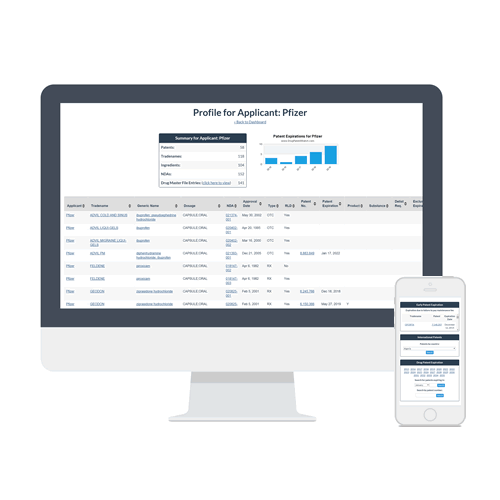Table of Contents
Introduction to Mini-Tablets

In pharmaceuticals, innovation is key to improving patient outcomes and experiences. One such groundbreaking development is the introduction of mini-tablets as a pharmaceutical dosage form. These tiny powerhouses are reshaping how we approach medication delivery, offering a host of benefits that traditional tablets simply can’t match. But what exactly are mini-tablets, and why are they causing such a stir in the pharmaceutical industry?
Understanding Mini-Tablets
Definition and Characteristics
Mini-tablets are, as the name suggests, miniature versions of conventional tablets. Typically ranging from 1.5 to 4 mm in diameter, these tiny tablets pack a powerful punch in a small package. Their diminutive size belies their significant impact on drug delivery and patient compliance.
Composition and Manufacturing
Like their larger counterparts, mini-tablets are composed of active pharmaceutical ingredients (APIs) and excipients. However, their production requires specialized equipment and techniques to ensure precision and uniformity. The manufacturing process often involves direct compression or, in some cases, advanced technologies like 3D printing.
“Mini-tablets represent a paradigm shift in pharmaceutical dosage forms, offering unprecedented flexibility in drug delivery and dosing.” – Dr. Sarah Johnson, Pharmaceutical Research Scientist at PharmaTech Institute
Advantages of Mini-Tablets
Improved Dosing Accuracy
One of the most significant advantages of mini-tablets is their ability to provide more accurate dosing. Their small size allows for precise combinations of different tablets, enabling healthcare providers to tailor medication regimens to individual patient needs with unprecedented accuracy.
Enhanced Patient Compliance
For many patients, especially children and the elderly, swallowing large tablets can be challenging. Mini-tablets offer a solution to this problem, as they are much easier to swallow. This can lead to improved patient compliance, a crucial factor in the success of any treatment plan.
Flexible Dosing Options
The versatility of mini-tablets is truly remarkable. They can be administered in various ways – swallowed whole, sprinkled on food, or even dissolved in liquids. This flexibility makes them an ideal choice for patients with different needs and preferences.
Reduced Side Effects
By allowing for more precise dosing and potentially improved absorption, mini-tablets may help reduce the incidence of side effects associated with over-medication or poor drug absorption.
Applications of Mini-Tablets
Pediatric Medicine
In pediatric medicine, mini-tablets are a game-changer. They offer a child-friendly alternative to large tablets or liquid formulations, which can be challenging to administer accurately. Dr. Emily Roberts, a pediatrician at Children’s Health Center, notes, “Mini-tablets have transformed how we approach medication for children. They’re easier to administer and allow for more precise dosing based on a child’s weight and age.”
Geriatric Care
Elderly patients often struggle with polypharmacy – the use of multiple medications. Mini-tablets can simplify complex medication regimens, making it easier for older adults to manage their health independently.
Controlled Release Formulations
Mini-tablets excel in controlled release applications. By combining mini-tablets with different release profiles in a single capsule, pharmaceutical companies can create sophisticated drug delivery systems that provide optimal therapeutic effects over extended periods.
Challenges in Mini-Tablet Development
Manufacturing Complexities
Producing mini-tablets requires specialized equipment and expertise. The small size of these tablets presents unique challenges in ensuring uniformity and quality control during the manufacturing process.
Stability Concerns
Due to their high surface area-to-volume ratio, mini-tablets may be more susceptible to degradation. Ensuring long-term stability and shelf life is a critical consideration in their development.
Regulatory Hurdles
As with any new pharmaceutical technology, mini-tablets face regulatory scrutiny. Demonstrating bioequivalence and meeting quality standards can be more complex for these tiny dosage forms.
Future Prospects of Mini-Tablets
Personalized Medicine
The precision offered by mini-tablets aligns perfectly with the growing trend towards personalized medicine. In the future, we may see “tablet dispensers” that can combine different mini-tablets to create custom-tailored doses for individual patients.
Advanced Drug Delivery Systems
Researchers are exploring the potential of mini-tablets in creating sophisticated drug delivery systems. For example, combining mini-tablets with different release profiles could allow for precise control over when and where drugs are released in the body.
3D Printed Mini-Tablets
The intersection of 3D printing technology and mini-tablets opens up exciting possibilities. 3D printed mini-tablets could offer even greater customization and on-demand production capabilities.
Case Studies: Mini-Tablets in Action
Pediatric Antibiotic Treatment
A recent study published in the Journal of Pediatric Pharmacology and Therapeutics demonstrated the efficacy of mini-tablet formulations of amoxicillin in treating pediatric infections. The study found that mini-tablets improved compliance and reduced dosing errors compared to traditional liquid formulations.
Controlled Release Pain Management
A pharmaceutical company recently launched a novel pain management product using mini-tablets. The product combines immediate-release and extended-release mini-tablets in a single capsule, providing rapid pain relief followed by sustained management over 12 hours.
Conclusion
Mini-tablets represent a significant leap forward in pharmaceutical dosage forms. Their ability to improve dosing accuracy, enhance patient compliance, and offer flexible administration options makes them a valuable tool in modern healthcare. While challenges in manufacturing and regulation remain, the potential benefits of mini-tablets are too significant to ignore. As research continues and technology advances, we can expect to see mini-tablets playing an increasingly important role in personalized medicine and advanced drug delivery systems.
The future of pharmaceuticals is small, precise, and tailored to individual needs – and mini-tablets are leading the way. As we continue to explore and refine this innovative dosage form, patients around the world stand to benefit from more effective, easier-to-manage medication regimens.
FAQs
1. Are mini-tablets suitable for all types of medications?
While mini-tablets offer many advantages, they may not be suitable for all medications. Factors such as the drug’s properties, required dose, and intended use all play a role in determining whether a mini-tablet formulation is appropriate.
2. Can mini-tablets be crushed or split like regular tablets?
Generally, it’s not recommended to crush or split mini-tablets as this could affect their release properties and dosing accuracy. Always follow the instructions provided with your medication or consult your healthcare provider.
3. How do mini-tablets compare to liquid medications in terms of dosing accuracy?
Mini-tablets often provide better dosing accuracy than liquid medications, especially for caregivers administering medication at home. Unlike liquids, which can be spilled or measured incorrectly, mini-tablets offer precise, pre-measured doses.
4. Are mini-tablets more expensive than traditional tablets?
The cost of mini-tablets can vary depending on the specific medication and formulation. While the manufacturing process may be more complex, the improved efficacy and reduced waste could potentially offset any increased production costs.
5. Can mini-tablets be used in combination with other dosage forms?
Yes, mini-tablets can be used alongside other dosage forms as part of a comprehensive treatment plan. However, any changes to your medication regimen should always be discussed with your healthcare provider.
Sources:
- Journal of Pediatric Pharmacology and Therapeutics
- PharmaTech Institute
- Children’s Health Center


